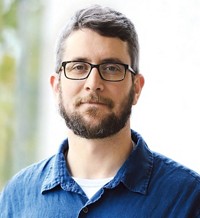Advertisement
Grab your lab coat. Let's get started
Welcome!
Welcome!
Create an account below to get 6 C&EN articles per month, receive newsletters and more - all free.
It seems this is your first time logging in online. Please enter the following information to continue.
As an ACS member you automatically get access to this site. All we need is few more details to create your reading experience.
Not you? Sign in with a different account.
Not you? Sign in with a different account.
ERROR 1
ERROR 1
ERROR 2
ERROR 2
ERROR 2
ERROR 2
ERROR 2
Password and Confirm password must match.
If you have an ACS member number, please enter it here so we can link this account to your membership. (optional)
ERROR 2
ACS values your privacy. By submitting your information, you are gaining access to C&EN and subscribing to our weekly newsletter. We use the information you provide to make your reading experience better, and we will never sell your data to third party members.
People
Dreyfus Prize Goes To Marks
Awards: Northwestern chemist honored for contribution to catalysis
by Mitch Jacoby
May 9, 2011
The Camille & Henry Dreyfus Foundation has awarded Northwestern University's Tobin J. Marks the 2011 Dreyfus Prize in the Chemical Sciences. The foundation is recognizing Marks, the Vladimir N. Ipatieff Professor of Catalytic Chemistry and Professor of Materials Science & Engineering, with the $250,000 prize for "development of major new industrial catalysts and the fundamental understanding of their chemical structures and mechanisms of action."
Marks, 67, is recognized internationally for his contributions to several areas of chemistry. In organometallic chemistry, Marks and his research group are considered pioneers for having developed methodology for synthesizing compounds featuring lanthanide and actinide elements and for customizing these f-element compounds to mediate novel catalytic transformations.
For example, the group has developed f-element catalysts that mediate hydrosilation, hydroalkoxylation, hydroamination, and hydrothiolation reactions. These novel catalysts are also being studied for use in polymerization reactions. The team also focuses on ways of using "green" solvents, including ionic liquids, as media to carry out these transformations.
In addition, the Northwestern researcher has also made bimetallic polymerization catalysts that feature custom-designed ligands that hold two metal centers in close proximity. In some cases, these catalysts were shown to be more than twice as active and three times more selective than standard polymerization catalysts.
Another example of the Marks group's contributions to catalysis is their development of techniques to support group IV metallocene-based catalysts on solid surfaces. These catalysts, which mediate olefin polymerization and benzene hydrogenation, are typically used in solution-phase reactions. Anchoring the catalysts on solids can enhance their activity and make separating them from products and recycling them simpler and less costly processes.
"Tobin's accomplishments are extraordinarily diverse and profound," says Marye Anne Fox, a chemistry professor and chancellor of the University of California, San Diego. Fox, who chairs the Dreyfus Scientific Affairs Committee, adds that improving catalytic processes by making them greener and more efficient is "essential to sustaining our environment."
Marks, who has mentored more than 100 Ph.D. students, says, "I am delighted and honored to receive this recognition in an area that so strongly depends on the science of modern chemistry and that is so important to improving the quality of our lives." Reflecting on the breadth of scientific contributions from researchers across the international catalytic community, he adds modestly, "I can only say that I was truly fortunate to be standing on the shoulders of giants."






Join the conversation
Contact the reporter
Submit a Letter to the Editor for publication
Engage with us on Twitter